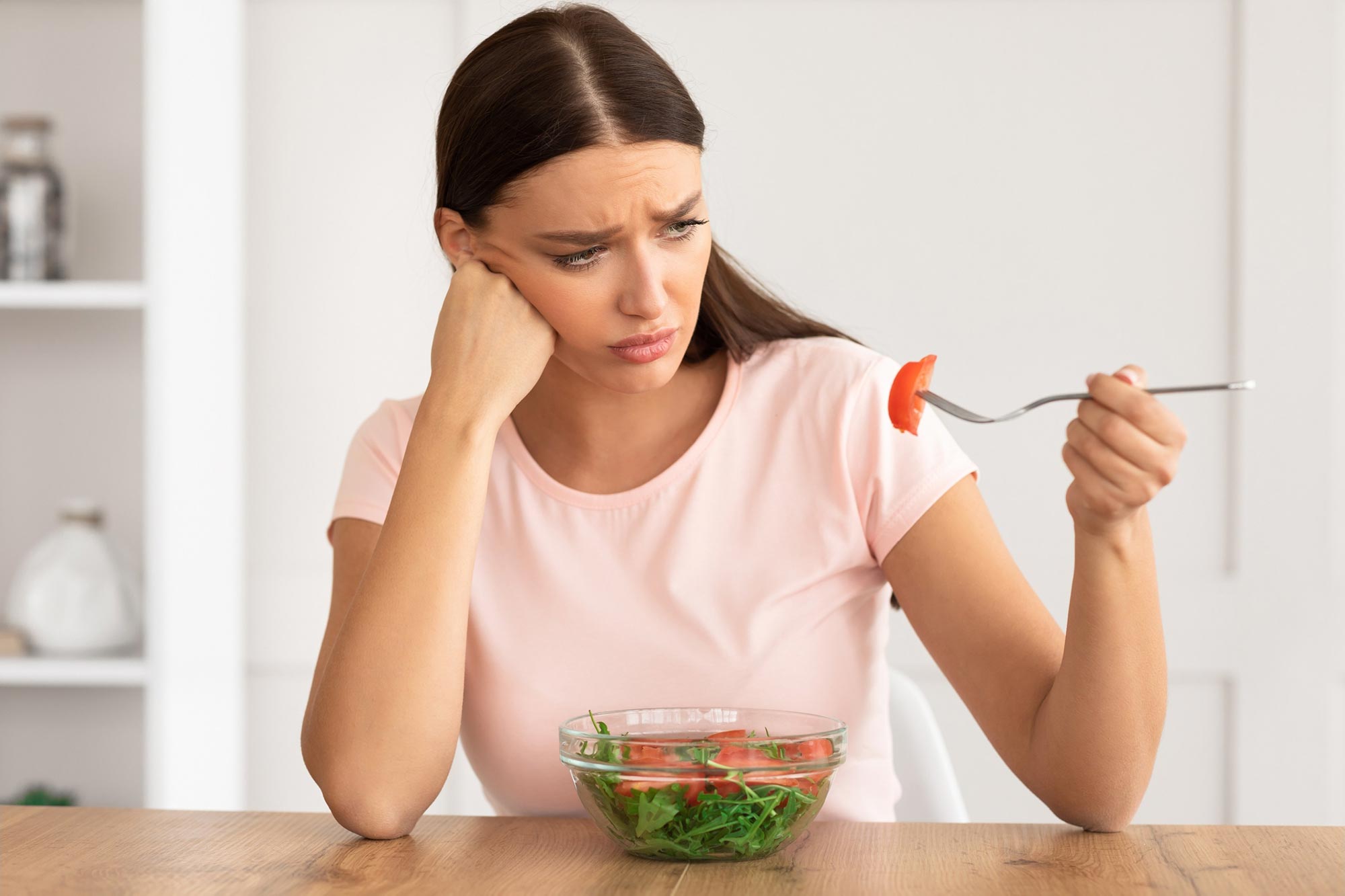According to a new study, vegetarians have around twice as many depressive episodes as meat-eaters.
The study, published in the Journal of Affective Disorders, is based on survey data from Brazil. It chimes with previous research that found higher rates of depression among those who do not eat meat. However, the new study indicates that this link exists independent of nutritional intake.
According to a Gallup poll, about 5% of the U.S. population considers themselves vegetarian. Women are about 50% more likely to be vegetarian than men. People who consider themselves liberal are far more likely to be vegetarian than conservatives or moderates.
It may seem straightforward to look at an association between a diet and specific health problems and assume that the former is causing the latter via some form of nutritional deficiency.
However, the new analysis took into account a wide range of nutritional factors, including total calorie intake, protein intake, micronutrient intake, and the level of food processing. This suggests that the higher rates of depression among vegetarians are not caused by the nutritional content of their diet.
So what might explain the link between vegetarianism and depression? Is there some non-nutritional mechanism that makes the former cause the latter? Or is the relationship down to something else entirely?

There are multiple possible reasons why there is a link between vegetarianism and depression.
First, it is possible that being depressed causes people to be more likely to become vegetarian rather than the other way around. The symptoms of depression can include rumination on negative thoughts, as well as feelings of guilt.
Assuming that depressed and non-depressed people are equally likely to encounter the upsetting truth of slaughterhouses and factory farming, it is possible that depressed people are more likely to ruminate on those thoughts, and more likely to feel guilty for their part in creating the demand.
The depressed vegetarian, in this case, is not necessarily wrong to think this way. While depression is sometimes characterized as having unrealistically negative perceptions, there is evidence to suggest that people with mild to moderate depression have more realistic judgments about the outcome of uncertain events and more realistic perceptions of their own roles and abilities.
In this case, there really is cruel treatment of animals in meat production. And this really is caused by consumer demand for cheap meat.

Sometimes in factory farming, animals really are treated cruelly.
Second, it is possible that adhering to a vegetarian diet causes depression for reasons other than nutrition. Even if there is no “happy nutrient” lacking in a vegetarian diet, it could be the case that forgoing meat causes depression through other means.
For example, adopting a vegetarian diet might affect one’s relationship with others and involvement in social activities. In fact, it is sometimes associated with teasing or other forms of social ostracism.
Notably, the new study is based on survey data collected in Brazil, a country famous for its meat-heavy diet. Some survey data has pointed to a sharp increase in vegetarianism in Brazil in recent years, going from 8% in 2012 to 16% in 2018. However, the recent paper surveyed over 14,000 Brazilians and found just 82 vegetarians – scarcely more than half a percent.
One has to wonder if the same link between vegetarianism and depression would be observed in India or other countries where vegetarianism is more of a social norm. More importantly, as the rate of vegetarianism increases in the UK and other developed countries, will we see the relationship disappear over time?
Finally, it is possible that neither vegetarianism nor depression causes the other, but both are associated with some third factor. This could be any number of characteristics or experiences that are associated with both vegetarianism and depression.
For example, women are more likely than men to be vegetarian, and also more likely to experience depression. However, the Brazilian study took sex into account, ruling out this particular third variable.
Not examined
One variable that was not examined, but is plausibly linked to both vegetarianism and depression, is exposure to violent images of the meat industry. Preventing cruelty to animals is the most commonly cited reason vegetarians give for avoiding meat.
Documentaries like Dominion and Earthlings that depict the cruelty in the meat industry cannot readily be described as feel-good films. One can easily imagine that a person who consumes this kind of media would become both vegetarian and, especially when most people choose to look the other way, depressed.
There are several possible reasons for the link between vegetarianism and depression. This new study suggests that vegetarian nutrition is not the cause of depression.
Instead, the vegetarian social experience may contribute to depression, depression may cause an increased likelihood of becoming vegetarian, or both vegetarianism and depression may be caused by a third variable, such as exposure to violent meat industry imagery.
- Karlston
-

 1
1




Recommended Comments
Join the conversation
You can post now and register later. If you have an account, sign in now to post with your account.
Note: Your post will require moderator approval before it will be visible.